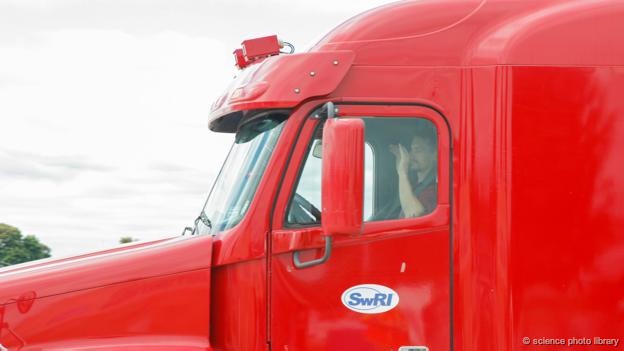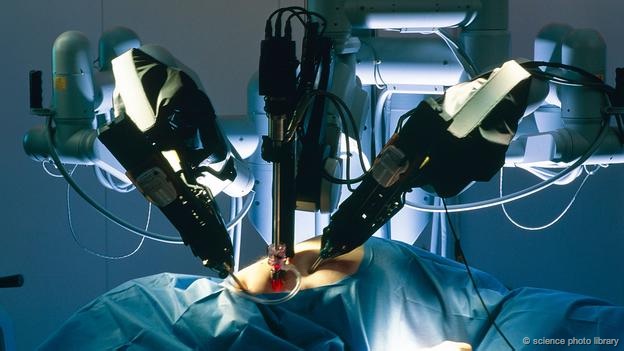| Online: | |
| Visits: | |
| Stories: |

| Story Views | |
| Now: | |
| Last Hour: | |
| Last 24 Hours: | |
| Total: | |
Warning: New Technological Breakthroughs Threaten Up to 47% of All U.S. Jobs

FOR MORE NEWS BY VOICE OF REASON CLICK HERE!
BE SURE TO GO MY PROFILE’S BELOW AT OTHER SOCIAL MEDIA:
FACEBOOK | TWITTER | PINTEREST | STUMBLE UPON | TUMBLER
If you’ve followed me for a while, you know I have spent a lot of time writing about the economy. More specifically, I’ve spent a lot of time writing about what I am certain will be a global depression of biblical proportions hitting us in the very near future. Often the doom and gloom predictions are met with remarks like, “Conspiracy Theorist! That is never going to happen.” Never is a very strong word, and I beg to differ. In fact, I’ll go so far as to say we’ll “never” be able to avoid the global depression that is coming. NEVER! All the Ivy league degrees in the world are no match for a bit of common sense, paper, and a crayon. The math is so simple, that if a crayon is all that’s available, then how we don’t still manage to arrive at the same conclusions given the facts is mind boggling to me.
The United States is the largest debtor nation on planet Earth, owing over $18 TRILLION dollars. That’s just what we owe. That doesn’t even consider the $200+ TRILLION in “unfunded liabilities” that our politicians have promised to people already, without the means to pay. Are YOU going to be perfectly willing to give YOUR cut of what YOU’VE been promised to the guy next door because the biggest Ponzi scheme in history goes bust? I highly doubt it. So, what do you suppose happens when you have 300 million people all really pissed off and broke? I told you the math would be very simple. As if it shouldn’t be inherently obvious that the can we’ve been kicking down the road is eventually going to reach a point REAL soon that it can’t be kicked one more inch, let’s look at a best case scenario.
Even with interest rates at almost zero, within just a few years the interest owed on our national debt is going to be more than the nation earns. That’s bad. That’s REAL bad, and guess what? There are a million other factors that when compounded with THAT, are going to make living in the near future excruciatingly painful for anyone still around to see it. You think racial tensions are high now, or tensions with law enforcement have been high as of late? Just remember something for me, we’re in a “recovery,” or so they tell us anyway. What do you suppose those tensions look like when the wheels come flying off and the “recovery” ends?
Guess what? None of those issues are what I am coming to you with today. Let’s live in Obama’s fantasy world for a moment, and just imagine the country had zero debt, and let’s pretend it even had the bulk of the unfunded liabilities it owes. We know that to be utter nonsense, but indulge me for a moment. As the video and the article below do an excellent job explaining, we have another problem on our hands. Our technology has reached stage where it is advancing too fast. It is estimated that further breakthroughs in technology will eliminate the need for as many as 47% of current U.S. jobs. You think you’re safe because you’re a lawyer or a doctor? Watch the video! Right now, we have 94 million unemployed people in the U.S., with a population of around 310 million. It’s not a matter of IF those 47% of jobs are going to vanish, just a matter of how fast!
The video and the article below do an excellent job of explaining what we could expect even if we lived in a perfect world, and our country’s financial house was in good order. Even then, the prognosis would STILL bad! Since this article and the video I found to go with it come at the economic situation from a much different perspective than I normally do, maybe NOW people will understand why I STRONGLY suggest you find a way to begin stockpiling for your family, while you can. If you didn’t read my post titled, Secret Societies Have Arranged For Trillions to be Spent On Underground Bunkers For Them, Not You, I’ll give you the cliff notes version: The financial derivatives bubble we are currently living in is 20% larger than the one in 2008.
When the bubble burst in 2008, the crash wiped out most common every day folks to the tune of around 50% of their net worth. Keep in mind the country was also almost fully employed then. Right now there are 94 MILLION not working, and an even bigger crash coming… get the picture? There is NO scenario where that magically all works out. It’s just a matter of when the you know what hits the fan.
BBC reports: It’s a booming time to be a truck driver. According to data NPR compiled from the US Census Bureau, truck driving is currently the most popular job in 29 states.
It’s not that truck driving is a particularly sought after career path, however. Rather, it is simply one that is available and pays decently. Unlike a plethora of other jobs that have declined in recent years, truck driving has remained immune to the forces that have elbowed out different lines of work. In the past decades, computers, cash machines and self-serve pumps have largely replaced secretaries, bank tellers and gas station attendants, respectively. Door-to-door deliveries, on the other hand, cannot be outsourced to another country, while long haul driving has yet to be automated.
Yet truck drivers might be next in line on the endangered jobs list. Google, Uber and Tesla are all working on self-driving vehicles, beginning with those that make long-haul journeys. If entrepreneurs succeed at automating cross-country deliveries, this would not only be a boon for companies that ship goods – self-driving trucks don’t have to stop for long mandatory breaks after spending hours on the road – but also for road safety. In the US alone up to 4,000 lives each year are lost in crashes with large trucks (driver error is almost always to blame).

Look, no hands! Will self-driving trucks such as these make humans redundant, or just change our skill set? (Credit: Science Photo Library)
Self-driving trucks wouldn’t be good news for everyone, however. Critics point out that, should this breakthrough be realized, there will be a significant knock-on effect for employment. In the US, up to 3.5 million drivers and 5.2 million additional personnel who work directly within the industry would be out of a job. Additionally, countless pit stops along well-worn trucking routes could become ghost towns. Self-driving trucks, in other words, might wreck millions of lives and bring disaster to a significant sector of the economy.
Dire warnings such as these are frequently issued, not only for the trucking industry, but for the world’s workforce at large. As machines, software and robots become more sophisticated, some fear that we stand to lose millions of jobs. According to one unpublished study, the coming wave of technological breakthroughs endangers up to 47% of total employment in the US.
But is there any truth to such projections, and if so, how concerned should we be? Will the robots take over, rendering us all professional couch potatoes, as imagined in the film Wall-E, or will technological innovation give us the freedom to pursue more creative, rewarding endeavors?
THE HAND THAT FEEDS
Examining these questions begins with the realization that technology, innovation and shifting cultural norms have always fueled a turnover in workforce composition. Machines have been taking our jobs for centuries. “Market economies are never sitting still,” says David Autor, a professor of economics at MIT. “Industries rise and fall, products and services change – and that’s been going on for a very long time.”
In the past, as some jobs have disappeared, others have risen in their wake. Artisanal skills – an indispensable commodity in 1750 in England – were replaced by factory work when industrial-scale manufacturing took over in the 19th Century. But by the 1980s, many of the Industrial Revolution-era assembly-line jobs had themselves fallen into the figurative hands of machines.
Overall, these changes have brought about more positive than negative results for society. “Generally, our time is made more valuable by the machinery we employ,” Autor says. “We can accomplish more.”
Electric washing machines transformed clothes cleaning from an hours-long task into something accomplished with the push of a button; power tools made construction immensely more efficient; and computers eliminated labour-intensive, by-hand calculations and writing. Boosts in quality of life and health and safety also often accompanied such developments. “Overall, people should be happy that a lot of these jobs have actually disappeared,” says Carl Frey, co-director of the Oxford Martin Program on Technology and Employment at the University of Oxford.

Many rail networks – including Dubai’s – are already autonomous. Yet the new technology can bring new opportunities (Credit: Getty Images)
Compared to the past, however, what is different about today is the pace at which market transformations are taking place. Aside, perhaps, from the Industrial Revolution, never before have we seen such rapid rates of societal and workforce change. While it’s too early to say for sure, data indicate that the employment market isn’t necessarily evolving fast enough to keep up with this change: the ratio of employment to the overall population has been falling in developed countries, even independent of the Great Recession. “My reading of the evidence is that the digital economy hasn’t created many jobs directly,” Frey says. “And the jobs it has created tend to be concentrated in cities like London, San Francisco, New York and Stockholm, which drives up prices, creates inequality and makes it difficult for people to live in or move to places where new jobs are emerging.”
As certain jobs began their march towards extinction, many people who used to hold those middle class positions – travel agents, telephone operators, photo lab technicians, book binders – shifted to lower-paying work – waiting tables, cleaning houses, landscaping – because they lack the training needed to transition into another job in the equivalent economic tier. “There’s a major shift happening in the skill sets people need,” says Alison Sander, director of the Centre for Sensing and Mining the Future at the Boston Consulting Group. “But that’s not a focus of our education system.”
Indeed, demand is steeply growing for highly skilled, highly educated workers, but precipitously declining for those with low to moderate education, Autor adds. This means that a large chunk of the population that could have maintained a middle-class lifestyle in past decades can no longer do so. Coming years will likely only see this problem intensify, as jobs that involve any kind of routine or repetitive work – mental or physical – are increasingly at risk of being ousted by automation. The endangered jobs list of the near future includes fast food workers, cashiers, telemarketers, accountants, waiters and even short-form journalists.
In addition, jobs that were once challenging and required highly skilled expertise could become mundane, thanks to automation. There are hints of this happening today. As X-rays and other medical records are digitized and computer algorithms become better at interpreting them, radiologists, for example, find themselves collaborating with machines, acting more as fact checkers than as medical sleuths. “If radiologists start to respond only to what the computer suggests, then they don’t develop their own very sophisticated skills,” says Nicholas Carr, author of The Glass Cage: Automation and Us. “Jobs that used to be very complex, idiosyncratic and interesting start to look more like computer operator jobs, just putting in data and interpreting screen readouts.”
OLD DOGS, NEW TRICKS
Automation, however, does not necessarily spell doom and boredom for entire sectors of the workforce. So long as jobs are available that require some degree of human involvement, there will be room for people to continue to hold them. When Google’s search engine began gaining momentum a decade or so ago, for example, fears abounded that librarians would be rendered obsolete. Instead, openings for librarians actually increased, although new skills were needed to excel at the job. “If it’s possible for a machine to completely replace a human, then yes, I’m superfluous,” Autor says. “But if I’m the person who can now manage that machine, then I become more valuable.”
Added to that is the fact that – unless the singularity unexpectedly occurs – machines and software will likely never replace certain jobs. So far, humans are vastly superior at any work that relies on creativity, entrepreneurialism, interpersonal skills and emotional intelligence. Jobs that fall into these categories – including clergymen, nurses, motivational speakers, caretakers, trainers, entertainers and more – will probably fare well in a more automated world.
Similarly, just because something can be automated, Frey says, doesn’t mean it will be. Even if restaurants begin using tablets installed on tables to take orders, and robots to deliver the food and refill beverages, society might not necessarily take to that change. It could turn out that people simply want to be served food – or have their groceries run up, or their taxis driven – by other people, not by machines. This phenomenon is reflected in the recent resurgence of artisans in urban centres around the world, from Brooklyn to London to Berlin to Portland. It turns out that there is a booming market for handcrafted furniture made from salvaged factory beams, hand built headphones, gourmet small-batch foods ranging from marshmallows to mayonnaise – and much more. While these products are valued precisely because automation plays no part in their production, many artisanal companies rely heavily on technology, like the Etsy peer-to-peer e-commerce website, to find a market for their goods.

Robot surgeons such as the da Vinci system can act as a doctor’s hands – though they may lack a good bedside manner (Credit: Science Photo Library)
Indeed, for all of the career doors technology shuts, there will also be a wave of new professional paths for people to create and explore. Just as some of today’s jobs – social media community manager, app designer, green funeral director – would have been impossible to imagine in 1995, we cannot definitively predict what new types of work will emerge in the future. But we can make educated guesses based on data and social trends. Sander envisions a future in which genetic counsellors, software debuggers, biobankers, augmented reality authors, anti-ageing specialists and urban natural disaster mitigation experts all occupy hot sectors of the economy. As more people move into cities, she also predicts jobs like urban farmers, anxiety counsellors, clutter consultants and even pet psychologists will become more favorable.
At the same time, though, we should not automatically assume that the economy will naturally smooth itself out and self-correct. Even if that’s happened in the past, there’s no guarantee it will play out that way in the future. To make the transition as painless as possible for everyone, we should be proactive about ensuring that the creative destruction of jobs is paired with adequate provisions for those who are displaced. “In the long run, automation makes us more prosperous overall, but it creates income distribution challenges, with the people towards the bottom being crowded out,” Autor says. “If we manage to create resources without a huge labour demand, the problem will not be, ‘Oh no, there’s no jobs!’ but ‘Oh no, we have lots of wealth – now how do we distribute it?’”
Socially responsible options may include bolstered support for the temporarily unemployed and accessible training programs to help transition them into a new sector. “As the pie gets bigger, we can afford a better safety net for people who end up with bad luck in terms of jobs that get eliminated,” says Erik Brynjolfsson, director of the MIT Initiative on the Digital Economy and co-author of The Second Machine Age.
Ensuring education keeps pace with societal change is also necessary. “We need to sit down with current curriculums, line them up against new categories of jobs and ask ourselves, ‘Are we preparing people in the right way for the future?’” Sander says. Many of the skills being taught today are no longer relevant for current jobs, she says, which has already led to significant mismatches in demand and supply.

We are a far cry from robots who can manage a classroom of children
(Credit: Getty Images)
Some countries, industries and companies are responding to these changes better than others. On one end of the spectrum regulatory regimes can prevent innovation, Sander says, as France is doing with the recent ban on Uber. On the other hand, some places are aggressively pursuing innovation. In Germany, 1.5 million people enroll in paid apprenticeships annually, emerging from the programs as highly skilled technical workers. Likewise, more than 4,000 companies around the world have built training campuses, the largest of which, run by Infosys and located in Mysore, India, has churned out more than 100,000 newly minted engineers since 2001. Others are tuning in to shifting demographics to try and prevent job loss in the first place. For instance, BMW is modifying manufacturing plants to meet the needs of older workers, rather than forcing them to retire.
Eventually, though, it very well could be that machines and artificial intelligence do displace the majority of professional tasks that humans currently perform. “I don’t think it’s imminent and don’t know when that will be, but I can certainly imagine a time in the future when machines do most of the jobs we’re doing today, and humans don’t have to work a whole lot if they don’t want to,” Brynjolfsson says.
Letting the machines take over to some extent isn’t necessarily all bad, especially as it is virtually guaranteed to lead to an increase in overall wealth and well being. Thanks to oil, Norway, for example, enjoys one of the highest GDPs in the world, but one of the shortest average workweeks: just 33 hours. As Autor says: “That doesn’t strike me as some terrible dystopia.”
FOR MORE NEWS BY VOICE OF REASON CLICK HERE!
BE SURE TO GO MY PROFILE’S BELOW AT OTHER SOCIAL MEDIA:
FACEBOOK | TWITTER | PINTEREST | STUMBLE UPON | TUMBLER
THE VOICE OF REASON
- WEBSITE: http://thelastgreatstand.com/
- FACEBOOK: https://www.facebook.com/LastGreatStand
- GOOGLE PLUS: https://plus.google.com/u/0/+LastGreatStand
- TWITTER: https://twitter.com/#!/LastGreatStand
- TEA PARTY COMMUNITY: https://www.teapartycommunity.com/profile-151600/
- PATRIOT ACTION: http://patriotaction.net/members/TheVoiceofReason
- YOUTUBE CHANNEL: https://www.youtube.com/user/LastGreatStand/
- SEEN.IS: https://www.seen.is/members/home
- RIGHT.IS: http://right.is/contributor/pages/351/169/bio.html





Big Fat Trucks With Nobody Behind Wheel Run Over People Walking Around Heavy Payload Bad Squeek Brakes.
Eat More GMO
Regarding Trucking? There’s always going to be a need to have a Human in the Cab. Machinery and Electronics aren’t flawless in Operation. They are subject to reliability problems and breakdowns. This state of affairs won’t change if The tech to produce Driver-less vehicles is approved for daily usage.
Therefore, the need to have a live Human travel in the cab will not diminish. In fact, having someone able to take over from the Software in the event of catastrophic failure will increase, not decline!
There will always be those who “Believe” that technology is supposed to improve and simplify Human existence. But in practice? It always complicates matters and compounds errors to the point that it takes a Human Mind to resolve those errors.
We’re not superfluous yet!
I guess the robots are going to buy their own crap. Amazing.
Well then, don’t be the driver be the MECHANIC!
No robot can replace an alternator. Still must be done by human hands.
See: Kingsman: The Secret Service
when the world is completely run by computerized robots we will al be rich AND able to pursue our every dream. (just as soon as we take care of the banksters)
I just saw a video about hotel robots that serve you breakfest an bring you anything you need!
there goes the room servce in hotels/motels!
restaurants are also installing tabs you order from! and some restaurants even have machines making meals now!
theres a few machines doing operations in hospitals as well!
but robots will always need people to make them, code them as well!
but this article is very right an worrys me!
this is why Id love to buy a big peace of land! HUGE!
make a town, no robots, everyone contributes!
familys open there own business for the town!
no rapes,killings would happen either!
anywho technolgie is going to hurt us big time in the end!